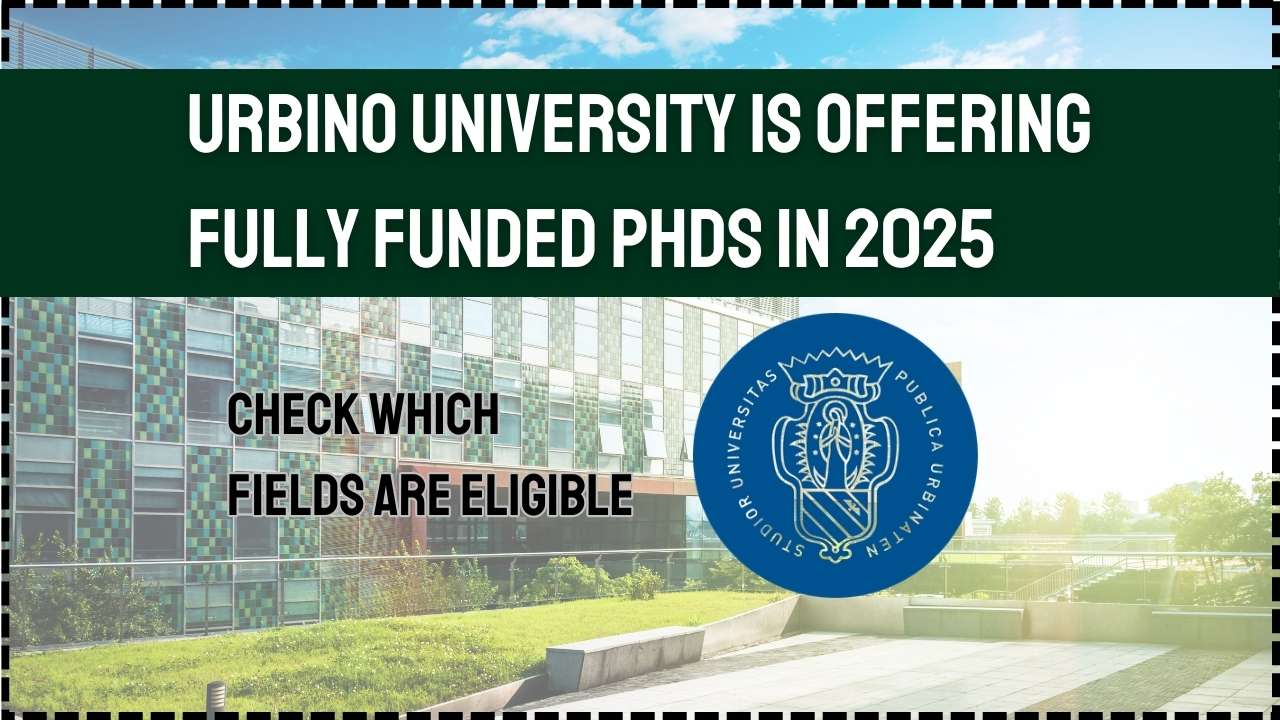
Max Planck Institute’s Doucet Scholarship 2026: If you’re an early-career researcher in legal history, especially one fascinated by Latin America’s colonial past, there’s big news you don’t want to miss. The Max Planck Institute’s Doucet Scholarship 2026 is now officially open for applications. This fully funded research opportunity in Germany offers a three-month academic residency in Frankfurt, access to one of the rarest legal archives in the world, and the kind of prestige that puts your CV on the global map. Designed for graduate students, PhD candidates, and postdocs, the Doucet Scholarship is all about exploring the legal history of colonialism using the renowned Doucet Collection — a library holding over 4,800 rare volumes from Spanish and Portuguese America. Whether you’re writing a dissertation or expanding a postdoctoral project, this grant could be your gateway to world-class research.
Max Planck Institute’s Doucet Scholarship 2026
The Doucet Scholarship 2026 is one of the most prestigious international grants for early-career researchers in legal history. With full funding, academic prestige, and unparalleled archival access, this program is an unmatched opportunity for global scholars—especially those from Latin America—to deepen their research, build global networks, and make a lasting academic impact.
| Category | Details |
|---|---|
| Scholarship Name | Doucet Scholarship 2026 |
| Host Institute | Max Planck Institute for Legal History and Legal Theory, Frankfurt, Germany |
| Program Dates | January 5 – March 31, 2026 |
| Funding | Fully funded: €1,365/month stipend, up to €1,500 travel, accommodation support |
| Eligibility | Early-career researchers (graduate students, PhD/postdocs); Global applicants; Preference for Latin Americans |
| Research Focus | Legal history of colonial Latin America or the Hispanic world |
| Application Deadline | September 15, 2025 |
| Application Languages | English or Spanish |
| Apply | Official Application Portal |
What Is the Max Planck Institute’s Doucet Scholarship 2026?
The Doucet Scholarship is a fully funded research fellowship hosted by the Max Planck Institute for Legal History and Legal Theory in Frankfurt, Germany. It gives scholars three months of intensive research time and full access to the Doucet Collection — a rare archive centered on colonial law in the Americas and the Iberian world.
This unique collection spans jurisdictions from New Spain (Mexico) and Peru to the Caribbean, River Plate, and even the Philippines, covering legal practices, administrative codes, and colonial case law. It’s a once-in-a-lifetime chance to immerse yourself in centuries-old legal systems and build a global academic profile.
Who Should Apply?
This opportunity is ideal for:
- Graduate students (Master’s or doctoral level)
- PhD candidates working on colonial legal history
- Postdoctoral researchers in legal studies, history, anthropology, or related fields
Bonus points if your project focuses on the colonial Spanish-speaking world, and even more if you’re from Latin America.
Not Eligible?
If you’re an undergraduate or don’t have a clear research project tied to the Doucet Collection, consider checking out other legal research opportunities like:
- DAAD Scholarships
- Alexander von Humboldt Research Fellowship
What the Scholarship Covers
The Doucet Scholarship is comprehensive. Here’s what you get:
- Monthly Stipend: €1,365 to cover living costs in Frankfurt
- Travel Allowance: Up to €1,500 for transatlantic flights; €750 for European flights
- Housing Assistance: Accommodation available in the Institute’s residence for around €680/month
You’ll also have work space, research support, and access to events, lectures, and peer networks within the Institute.
Sample Research Topics
Not sure if your topic qualifies? Here are a few examples of eligible projects:
- The influence of Roman law on colonial courts in New Spain
- Legal practices in indigenous communities during Spanish colonization
- Slavery and legal definitions of personhood in Peru
- Land distribution laws in the 17th-century River Plate region
- The Spanish legal legacy in the Philippine archipelago
If your project draws heavily from historical legal texts and offers insight into colonial systems of law, you’re likely on the right track.
What’s Life Like at the Institute?
Expect to work in a collaborative, international environment. You’ll be surrounded by leading experts in legal history from Europe, Latin America, and beyond. The Institute runs regular colloquia and workshops, which Doucet Scholars are encouraged to attend.
Daily life is flexible. You’ll have access to the library from morning till late, with breaks for meals at the in-house cafeteria or exploring nearby cafés in central Frankfurt.
Frankfurt itself is a cosmopolitan city, with great public transit, a vibrant arts scene, and an international airport that makes weekend trips across Europe totally doable.
Tips to Strengthen Your Application
Competition is strong. Here’s how to stand out:
- Align your topic with the Doucet Collection – Mention specific books or legal materials you’ll use.
- Keep your proposal focused – Be clear about your research question and objectives.
- Show how your work fits global discussions – Reference colonialism, legal pluralism, or historical justice.
- Tailor your motivation letter – Explain why this scholarship is a key step in your academic path.
- Proofread everything – Spelling errors don’t look good at any stage.
Testimonials from Past Scholars
“The Doucet Scholarship gave me access to documents I’d only seen referenced in secondary sources. It changed the trajectory of my dissertation entirely.” — Maria V., Colombia
“I met scholars from Brazil, Germany, and Argentina who later became co-authors on an article. This scholarship goes way beyond access to books.” — Lucas A., Brazil
Career Benefits
The Doucet Scholarship offers major advantages for your future:
- Resume credibility: Max Planck Institute is a global name in legal research
- Networking: Build long-term relationships with experts in law, history, and politics
- Publications: Your access to primary sources could result in high-impact academic papers
- Postdoc readiness: Use the experience to apply for longer-term European grants
Frequently Asked Questions (FAQs)
Do I need a German visa?
Yes, if you’re a non-EU citizen. The Institute helps with visa support after acceptance.
Can I apply with a team or co-author?
No, the scholarship is awarded to individuals only.
Do I need to submit a writing sample?
Not mandatory, but a relevant academic writing sample may strengthen your application.
Is this scholarship renewable?
No, it’s a one-time, three-month opportunity.
Can I work remotely or partially online?
No, the scholarship is in-person and full-time in Frankfurt.







